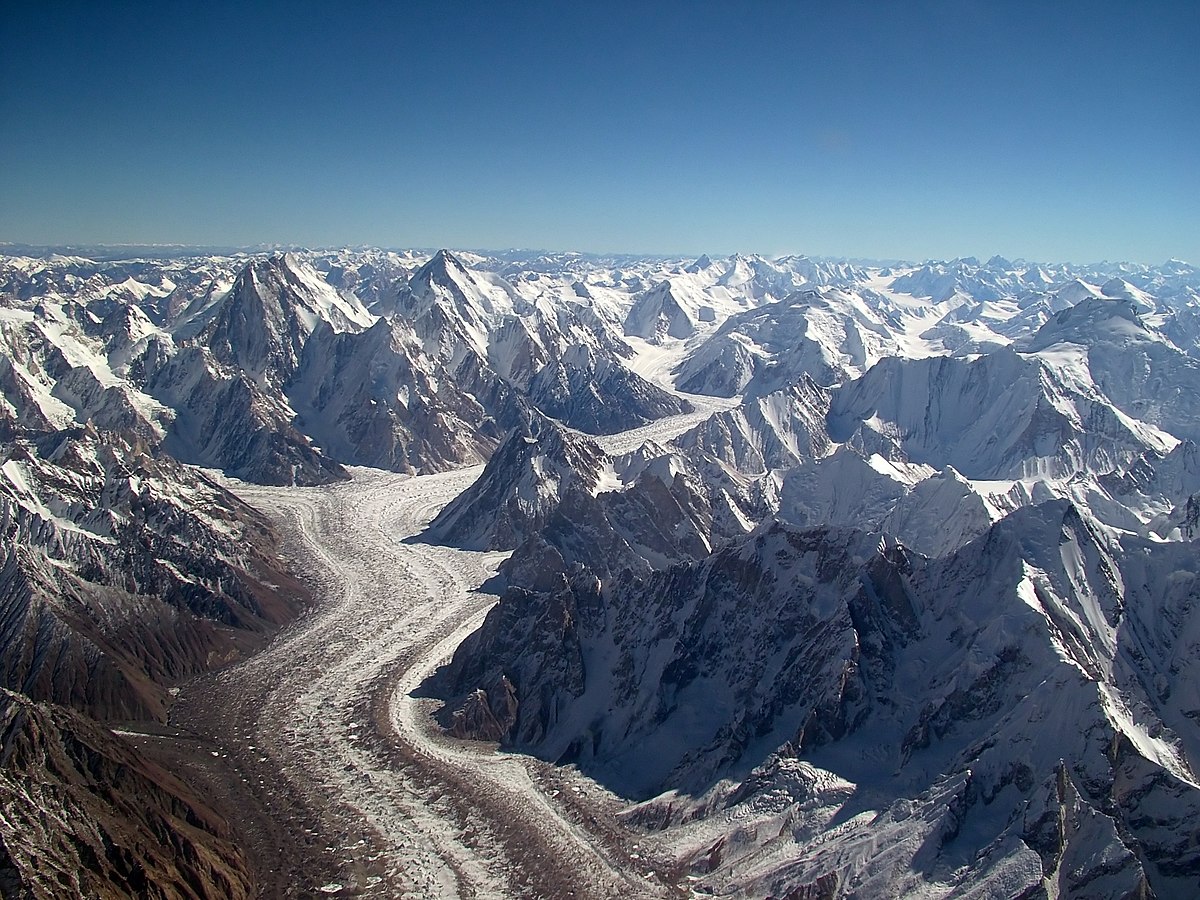From Wikipedia
On Earth, 99% of glacial ice is contained within vast ice sheets in the polar regions, but glaciers may be found in mountain ranges on every continent except Australia, and on a few high-latitude oceanic islands. Between 35°N and 35°S, glaciers occur only in the Himalayas, Andes, Rocky Mountains, a few high mountains in East Africa, Mexico, New Guinea and on Zard Kuh in Iran.[1] Glaciers cover about 10 percent of Earth's land surface.
Glacial ice is the largest reservoir of freshwater on Earth.[3] Many glaciers from temperate, alpine and seasonal polar climates store water as ice during the colder seasons and release it later in the form of meltwater as warmer summer temperatures cause the glacier to melt, creating a water source that is especially important for plants, animals and human uses when other sources may be scant. Within high altitude and Antarctic environments, the seasonal temperature difference is often not sufficient to release meltwater.
Because glacial mass is affected by long-term climactic changes, e.g., precipitation, mean temperature, and cloud cover, glacial mass changes are considered among the most sensitive indicators of climate change and are a major source of variations in sea level.
Read more here https://en.wikipedia.org/wiki/Glacier
 |
| The Baltoro Glacier from the air, surrounded by the mountains of the Karakoram |Source=[http://www.flickr.com/photos/22539273@N00/55896170/ Glacier] |Date=October 23, 2005 at 10:00 |Auth |
B.C. glaciers melting: U.S. reporthttps://t.co/hscQ7GLaau#glaciers #water #BC #BCpoli #ClimateChange We need #ClimateAction now!— Tina Winterlik (@zipolita) May 18, 2016
Glaciers are melting!— Tina Winterlik (@zipolita) May 18, 2016
Why does it matter? https://t.co/lFS4J48vNN#glaciers #climatechange #water #flooding #coast #savemycoast
Why does it matter?
As glaciers and the giant ice sheets on Greenland and Antarctica melt, they add more water into the ocean, which causes sea level to rise.Check out the effects of melting glaciers on coastal areas. Read more here
Graphic: Dramatic glacier melt https://t.co/CwomYuKM4M #glaciers #water #climatechange #ClimateAction— Tina Winterlik (@zipolita) May 18, 2016
Carbon pollution seen as key driver of sea level rise https://t.co/CoCkkzJwNg pic.twitter.com/r5h3q5CjOJ— Climate Central (@ClimateCentral) April 11, 2016
#USEYOURVOICE. Speak up about what’s really happening ⁰to the climate.https://t.co/qSmjoZ5NSJ#climatechange #ClimateAction— Tina Winterlik (@zipolita) May 18, 2016
Glaciers are melting!— Tina Winterlik (@zipolita) May 18, 2016
Why does it matter? https://t.co/lFS4J48vNN#glaciers #climatechange #water #flooding #coast #savemycoast

No comments:
Post a Comment